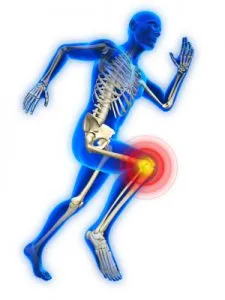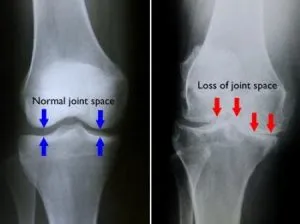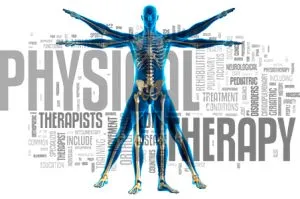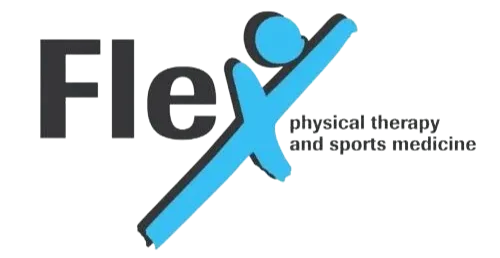It is quite common for people to experience a certain degree of knee pain at some point in their lives. This can occur due to high activity sports, intense work requirements, or even living your everyday life. The experience of knee pain can range anywhere from an occasional and annoying hindrance to severe and chronic pain that can truly affect an individual’s quality of life. Whatever the level of pain, if you are experiencing knee problems, it is integral to make sure you receive the correct diagnoses.
Why should I get diagnosed?
By visiting a medical practitioner and receiving the right diagnoses for your knee problem, you can start implementing methods to decrease the pain and improve your condition. This can boost your quality of life.
Knee problems can arise or be exacerbated not only by high levels of activities such as sport, but also due to age, obesity, genetics, and overuse. Whatever the source of your problem, it is essential to get your knee pain adequately diagnosed by a medical practitioner, so you can start your road to recovery.
Read on to find out the symptoms of the five most common diagnoses for knee pain!

Knee ligament injuries
Ligament injuries are relatively common and are mostly induced by high contact sports. The ligaments connect your thigh and lower leg and ensures that your bones are held together correctly and that your knee is stable and functioning. A ligament injury in the knee can be intensely painful. Proper care of knee ligament injuries is critical to restore normal function and stability to your knee joint.
Knee cartilage tears
The cartilage is a sturdy tissue that protects the end of your bones from deterioration and damage. A tear of your knee cartilage (aka a meniscus tear) is fairly common; a twist of the knee can be enough to damage and tear this meniscus cartridge. Symptoms of a cartilage tear include pain, swelling, knee lock, and difficulty to bend or straighten your leg. Treatment for a tear is largely dependent on the scope of the injury and the injured parties age and level of activity. Some small tears may heal by themselves with rest and recuperation; other more intense tears (typically done in the ‘white zone’ of the knee) may require surgery.
Knee osteoarthritis

Osteoarthritis stands out among the most widespread causes of joint pain; it currently affects approximately 27 million people in America alone. This kind of arthritis commonly affects knees, but it can also be found in people’s hips, lower back, and fingers, to name but a few. Essentially, Osteoarthritis occurs when the cartilage (that cushion that coats the end of bones) gradually wears down. Deterioration of the cartilage may result in pain, stiffness, and swelling. Knee osteoarthritis is found mostly in individuals over 65, but you can also be at risk because of obesity, genetics, and overuse of joints.
Kneecap tracking problems (patellofemoral dysfunction)
Patello-femoral tracking dysfunction occurs when your kneecap stops sliding evenly when you flex, straighten, and extend your knee. Muscle or ligament tension, debilitated thigh muscles, strenuous physical activities, and alignment issues can all be a contributing factor to patellar tracking disorder. Running or sports that involve exercises such as jumps and squats can cause and exacerbate this knee disorder. Symptoms of this dysfunction include pain while jumping, squatting, or using stairs. People suffering from kneecap tracking problems can also experience difficulty and pain when straightening out their leg.
Knee tendonitis

Knee tendinitis occurs when the tendon in the knee is inflamed, and the movement of the muscles in the knee becomes painful. A common cause of knee tendonitis is stress due to overuse. This happens when the tendon is overstressed and strained by doing a repetitive movement over and over. In these cases, the tendon becomes stressed to the point where it is unable to repair itself. As a result, the tendon becomes softer, weaker and less able to tolerate the forces developed at the knee joint. Pain is then experienced. Physical therapy is critical in teaching you how to correctly and selectively strengthen the tendon.
How to treat
Every case of knee pain is unique, and a medical professional should also direct the diagnoses and recovery of any health issues you may have. Below we have a list of general suggestions that can assist in reducing your risk of contracting knee pain and help you to maintain optimal health for your joints and muscles.
Lose weight: If you are above the recommended weight for your age and height, consider changing your exercise and diet routine. Losing weight can be the key to reducing the risk of knee and joint pain. Be sure to slowly ease into any new exercise regime to avoid causing or exacerbating any knee injury.

egularly visit a medical professional such as physical therapist is very helpful. These experts can equip you with low-impact strengthening exercises that suit your age, lifestyle, and routine.
Although surgery is at times the only path forward, talk to your doctor about other treatments or methods of rehabilitation before committing to surgery.
If you are someone you know is suffering from knee pain. Give a call at (800) 930-8803 to set a Free Discovery Visit with one of our knee pain specialists or sign up here for your Free Discovery Visit now.
https://www.arthritis.org/about-arthritis/types/osteoarthritis/what-is-osteoarthritis.php
https://www.webmd.com/pain-management/knee-pain/tc/patellar-tracking-disorder-topic-overview#1
https://www.everydayhealth.com/knee-pain/what-is-tendinitis.aspx


